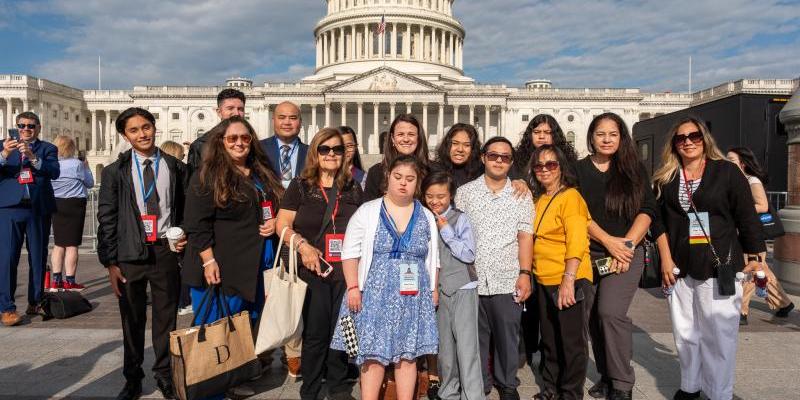What is Down syndrome?
- Down syndrome occurs when an individual has a full or partial copy of the 21st chromosome.
- The cause of the extra or partial chromosome is still unknown.
- Down syndrome is a condition or a syndrome, not a disease or birth defect.
- People with Down syndrome are part of the Intellectual and Developmental Disability (IDD) community.
- Approximately 1 in 640 babies in the United States are born with Down syndrome.
Use this language when referring to Down syndrome and individuals who have Down syndrome:
- People with Down syndrome should always be referred to as people first. Instead of a "Down syndrome child," it should be "a child with Down syndrome."
- It is preferred to say "Down syndrome" rather than "Down's syndrome." Also avoid using "Down's child" or calling it "Down's."
- Down syndrome is named for the English physician John Langdon Down, who characterized the condition, but did not have it. An apostrophe "s" connotes ownership or possession.
- While Down syndrome is listed in many dictionaries with both spellings (with or without an apostrophe "s"), the preferred usage in the United States is Down syndrome. The AP Stylebook recommends using "Down syndrome," as well.
- NDSS strongly condemns the use of the word "retarded" in any derogatory context. Using this word is hurtful and suggests that people with disabilities are not competent.
- "Intellectual and Developmental Disability" has replaced "mental retardation" as the appropriate term.
- "Typically developing" or "typical" is preferred over "normal."
- Down syndrome is a condition or a syndrome, not a disease. People "have" Down syndrome, they do not "suffer from" it and are not "afflicted by" it.







